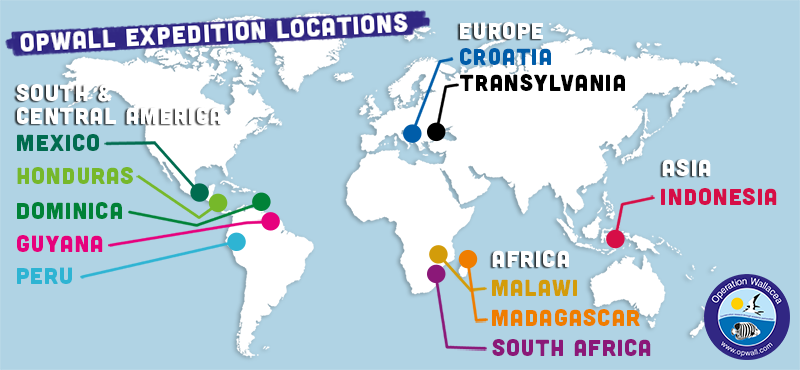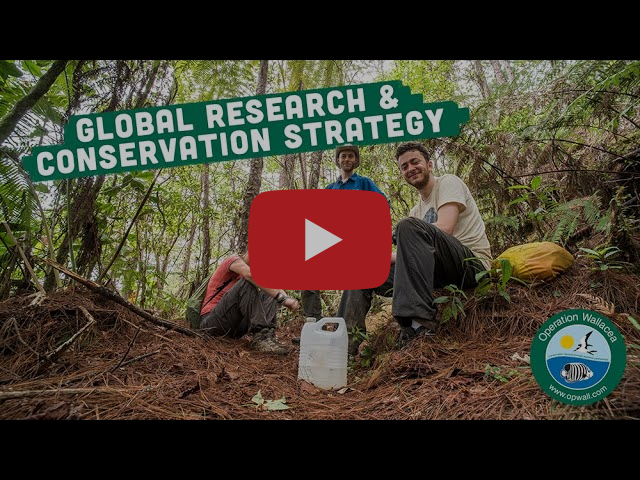Operation Wallacea has run biodiversity research expeditions for the last 25 years to a series of sites mainly in the Tropics www.opwall.com. The programme supports more than 200 academics and part funds 90+ PhD students and runs each summer from June to August. At each of the sites there are multiple scientists and participating students who rotate amongst all the projects to widen their experience or can use the set up to gather data for an independent research project.One of our lead academics will be presenting about the program over the month of October where students can learn about how they could join the program and how the data collected are being used to help with wildlife conservation measures. More than 500 papers including some in high impact journals such as Nature and PNAS have been published from these annual programs, so students joining the field surveys are guaranteed a high level of academic involvement. For example outside the main Opwall season (June to August) we make the facilities, equipment and existing university level lecture series about the ecology of the local area available to groups wanting to complete university field courses. In addition, we are running a field survey techniques and data analysis course in Florida next Spring Break.
|
|
Opportunities to gain remote fieldwork experience in biodiversity and conservation research |
|
Operation Wallacea has run biodiversity research expeditions for the last 25 years to a series of sites mainly in the tropics (www.opwall.com), helping university students from around the world gain valuable experience and get their hands dirty with real biodiversity research. From tropical rainforests and European grasslands to coral reefs and Mediterranean seagrass meadows, our network of more than 200 academics lead cutting edge research projects that help to inform local conservation management strategies.
More than 500 papers including some in high impact journals such as Nature and PNAS have been published from these annual programs, so by joining the field surveys you are guaranteed a high level of academic involvement. By working alongside these academics, students either gain broad experience as research assistants or to gather data for their independent research project (thesis). The expeditions vary in length from 2 to 6 weeks during the month of June to August. |
|
One of our lead academics is presenting about the program over the month of October, where you can learn about how to join one of these expeditions and how the data collected are being used to help with wildlife conservation measures. The series of webinars being hosted by our academic are listed below, so please click on the webinar time and date that you can attend. |
|
Expeditions were cancelled for 2020 but we are going ahead with a full range of expeditions for the 2021 season. The expeditions will be socially distanced (e.g. one tent per person) and if developments in the fight against the virus do not go as planned and we cannot run the 2021 expeditions, then anyone booked on for 2021 will get a cash refund.
When students sign up we give them support in how to fundraise and most students raise a good percentage or even all of the funds needed from grants, sponsorship and fundraising activities. Given the growing public concern about species extinctions and climate change getting support for joining real biodiversity research expeditions to remote areas of the tropics is increasingly possible. However, raising funds takes time which is why we like to introduce the programs to students as soon as possible in the new university year. |
|
We have recently put together a full introductory video, it is longer than any of our other videos but it gives a great amount of information about what we do and why (view here). |
|
For everyone who submits an expression of interest, a bespoke itinerary is created and sent to you, this is based on your interests and career objectives. To submit an expression of interest click here. |
|
|
| |
|





